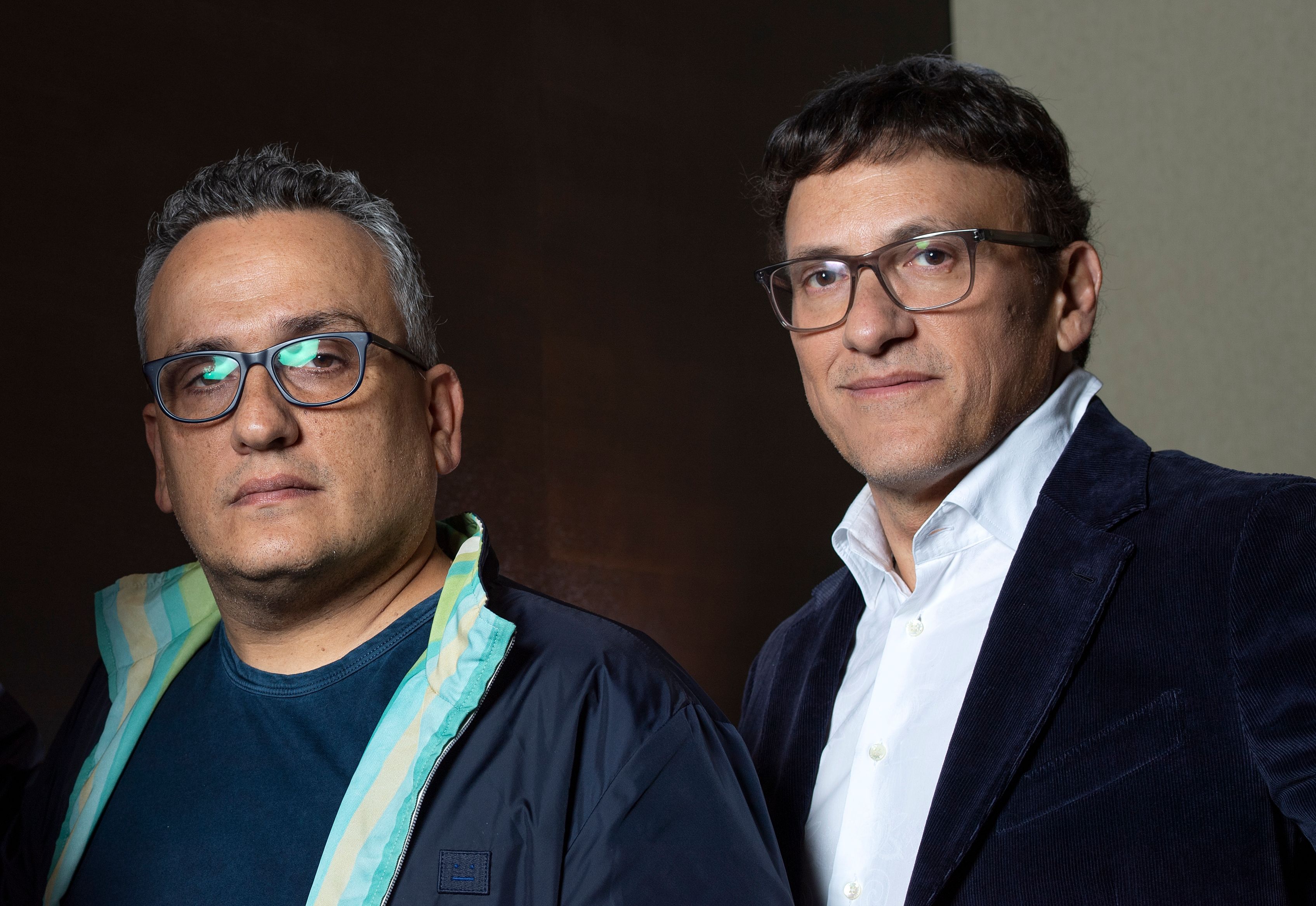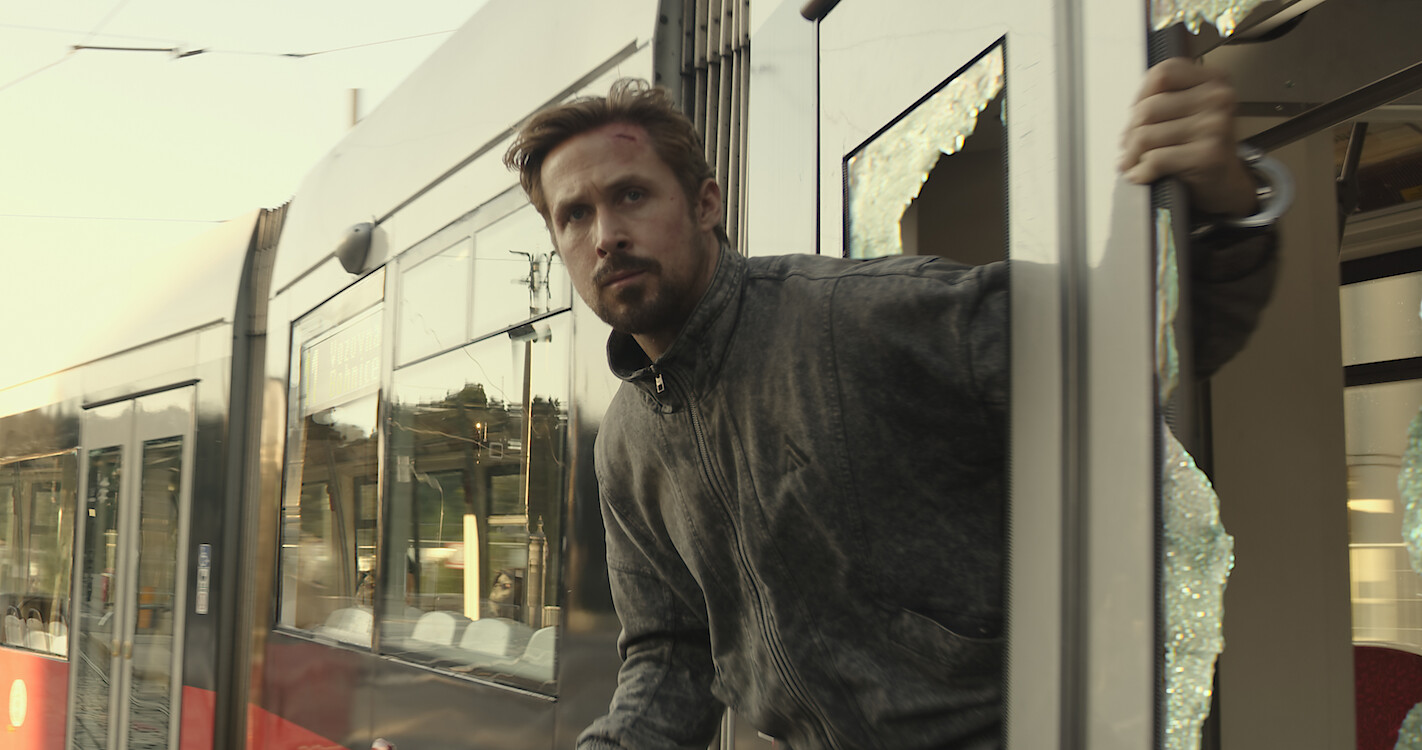‘Gray Man’ Co-Director Joe Russo: ‘$200M at Netflix Is Different from $200M at, Say, Disney’
The filmmaker discusses Netflix’s economic future in an exclusive interview with Next TV’s David Bloom

The smarter way to stay on top of the streaming and OTT industry. Sign up below.
You are now subscribed
Your newsletter sign-up was successful
This weekend, brothers Joe and Anthony Russo, who directed four of the biggest movies in film history for Disney, take a great big swing directing a different kind of blockbuster for Netflix with The Gray Man. The spy action-thriller stars Ryan Gosling, Chris Evans and Ana de Armas and arrives just as the streaming giant is transforming itself in multiple ways.
As The Gray Man zips around multiple continents on the big screen and across Netflix’s globe-girdling network, the question looms: Is this massive project, with big stars and a bigger budget, the apotheosis of what Netflix used to be, a lavish-spending disruptor of Hollywood’s old ways? Or is it the company’s more straitened future, with fewer but better projects and an audience boosted by a new ad-supported tier, longer theatrical releases and other changes?
The movie arrives at something of an inflection point for Netflix, about the time audiences finish devouring season four of Stranger Things and season three of The Umbrella Academy. The Gray Man slots behind those two series, among the company’s most-watched and most expensive, which have been germinating at Netflix for a few years now. Will a newfound parsimony get in the way of the next generation of such projects as Netflix trims its sails in rough weather?
Joe Russo framed the brothers’ move to Netflix in part about their abiding interest in new creators, new technologies and how the former use the latter in remaking Hollywood verities.
That interest manifests with their own projects, but also by helping up-and-comers such as “The Daniels” (Dan Kwan and Daniel Scheinert, co-directors of this year’s hit A24 release Everything Everywhere All At Once, which the Russos produced), or Sam Hargrave, who directed Netflix’s 2020 Chris Hemsworth hit Extraction and for which the Russo Bros. were writer-producers.
“We're compelled by what's next,” Russo said. “And we're compelled by assisting people like the Daniels and discovering what is next, and people who have a penchant for experimentation and understanding the technology. Netflix is an incredible distribution platform where 100 million viewers watched Extraction. That’s the equivalent of about $2 billion of [theatrical] box office. That’s dramatic and significant, and we see them as a really compelling, forward-thinking distributor of storytelling moving forward.”
The Gray Man debuts in 600 U.S. theaters next weekend, a relatively wide release for Netflix. A week later, on July 22, The Gray Man will begin streaming on Netflix itself. It is by all accounts the most expensive project ever at Netflix, at $200 million, though the Russos said that number comes with caveats.
The smarter way to stay on top of the streaming and OTT industry. Sign up below.
“It's in the ballpark of that,” Russo said. “Netflix obviously is different than other studios, because they have buyouts that go against the budget. And so you know, when you say $200 million at Netflix, that’s different than $200 million, say, at Disney.”

Though Netflix doesn’t report box-office grosses (indeed, the movie is not even listed in the BoxOfficeMojo.com lineup for next week), The Gray Man faces 10 other new films during its short visit to theaters, including literary adaptation Where the Crawdads Sing and a Bruce Willis action thriller, Wrong Place.
More challenging, The Gray Man’s true competition in theaters is led by billion-dollar blockbuster Top Gun: Maverick and Thor: Love & Thunder, which topped $302 million in worldwide grosses this past weekend.
Thank goodness Netflix doesn’t care about nearly any of that. And the Russos profess to be just fine without the accouterments of a traditional theatrical launch, with its ballooning nine-figure marketing budget and endless succession of premieres and junkets.
“We're agnostic,” Russo said. “We don't care. Our intention as storytellers is to reach as wide an audience as possible. We love movies. We grew up on movies. We were in the theaters in the ’70s discovering the auteurs while it was happening. We came out of that generation. However, we are not reverential about it because everything has its time and then has to transition to the next generation. It is not our right or responsibility to define what future artists should or should not be able to do and what they should consider art or not consider art.”
The Russos directed a string of TV series, TV movies and shorts before hitting it big as director-producers on four Marvel Avengers and Captain America features between 2014’s Captain America: The Winter Soldier and 2019’s Avengers: Endgame. Combined, those films grossed an astounding $6.7 billion worldwide.
After that success, they launched AGBO with Christopher Markus and Stephen McFeely, who were their writing collaborators on the four Marvel hits, and on their next Netflix book adaptation, The Electric State, starring Chris Pratt and Stranger Things star Millie Bobby Brown.
The Gray Man is a prodigious piece of film craft in its own right, based on a Jason Bourne-like assassin played by Gosling and hunted by Evans. Seemingly every nickel of the budget is evident onscreen, skipping from Bangkok to Prague to Vienna to Virginia.
For their part, the Russos had “a blast” making the film, but didn’t change much of their creative process to accommodate Netflix, Russo said.
“Netflix, frankly, doesn't ask anything of you, other than to do your job and do it well,” Russo said. “They’re easier than any studio we've ever worked with, and with respect to our artists and the freedom to make the story that you want to make. They have an immense amount of capital deployed to make content. They make a lot of it, so much of it that [the company is] like: ‘Good luck, we'll see you at the end of it. Let us know if you need any help.’ It’s a very refreshing way to approach storytelling and making a movie as an artist.”
Another big difference is the marketing spend. With Extraction, the Russos estimated Netflix spent one-tenth what marketing for a traditional theatrical release would have dictated while still reaching a gigantic audience.
“Ultimately … what we care about is, what was the reach of the story?” Russo said. “Who did it get to? Frankly, in a lot of ways, you’re getting a broader audience through something like Netflix, because going to the movies is expensive, it's somewhat of an elitist experience. You go to other parts of the world, you go [to a movie] once in your life, and that’s a very significant experience for you. You can get Netflix for $10 or $14, and watch 40 stories in a month versus going to the movies and getting one story once. I think that's important.”
Also attractive to the brothers was the potential to build a new franchise they would control around The Gray Man, which is based on a book series by Mark Greaney.
“We tried to include characters within this film that you want to know more about in in other formats, whether it be other films or series or whatever it may be,” Anthony Russo said. “So we absolutely approached this as the sort of tip of the iceberg of a narrative universe. Now whether we actually get to make that universe, we’ll see. It certainly depends on how this movie is received by audiences. But as creatives we approached it that way.”
The brothers also embraced the likelihood that Netflix will develop games, merchandise, virtual reality or live experiences if the film is a hit.
But future installments, if they happen, are going to be for a transformed Netflix. After announcing its first drop in subscriber totals in a decade, Netflix share prices plummeted this spring. The company has since laid off hundreds and announced plans for an ad-supported tier. It has even talked of longer exclusive runs in theaters for big projects such as The Gray Man, an essential demand from the big theater chains in exchange for their carrying Netflix projects.
For their part, Netflix executives have been on a “charm offensive,” telling Hollywood talent, production companies and agents that the company is still spending on great projects.
The Russos noted that all the Netflix changes are really about the company getting ready for the next phase of the streaming wars. And they’re happy to take AGBO’s projects along for the ride.
“I think they’re just deploying like phase two of their plan as a company, which is to get into gaming, and there are rumors that they're gonna expand theatrical windows to take advantage of theatrical and digital distribution,” Russo said. “They’re just looking at the entire business model, which just … seems to be shifting on a monthly basis.” ▪️
David Bloom of Words & Deeds Media is a Santa Monica, Calif.-based writer, podcaster, and consultant focused on the transformative collision of technology, media and entertainment. Bloom is a senior contributor to numerous publications, and producer/host of the Bloom in Tech podcast. He has taught digital media at USC School of Cinematic Arts, and guest lectures regularly at numerous other universities. Bloom formerly worked for Variety, Deadline, Red Herring, and the Los Angeles Daily News, among other publications; was VP of corporate communications at MGM; and was associate dean and chief communications officer at the USC Marshall School of Business. Bloom graduated with honors from the University of Missouri School of Journalism.

